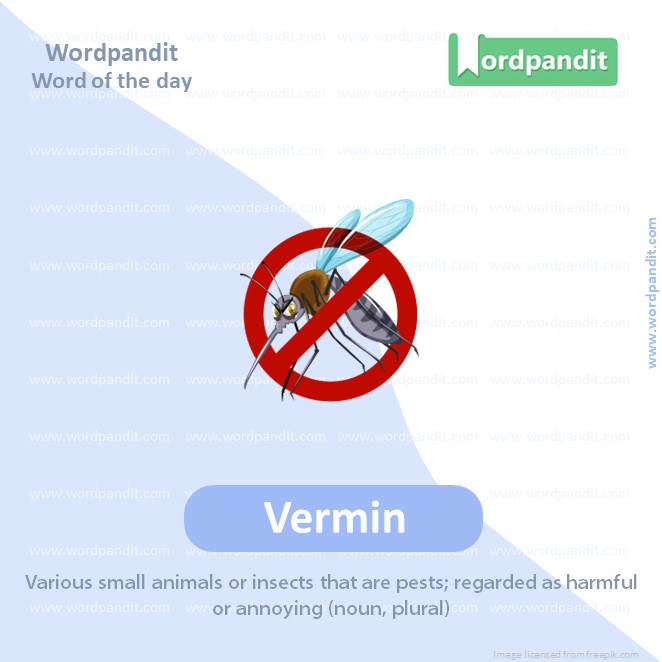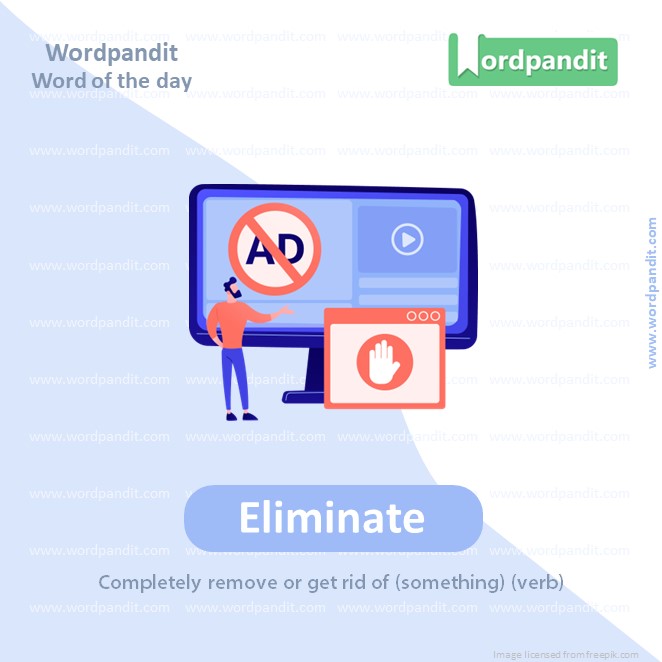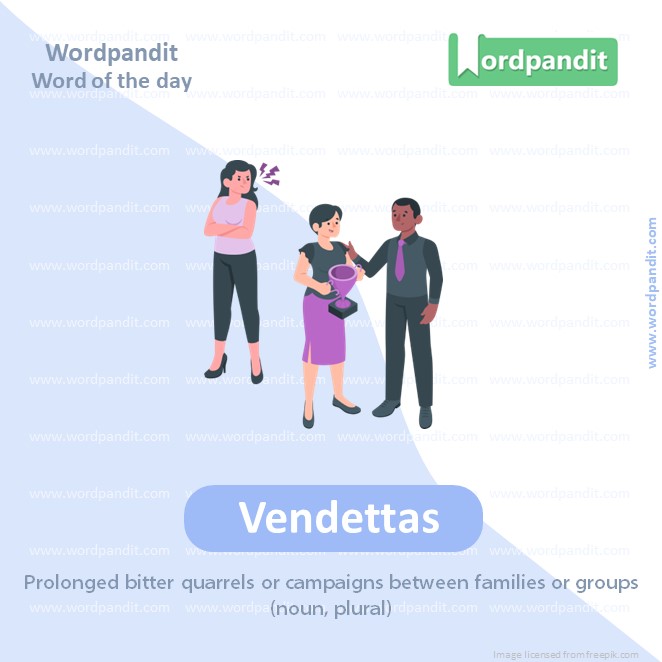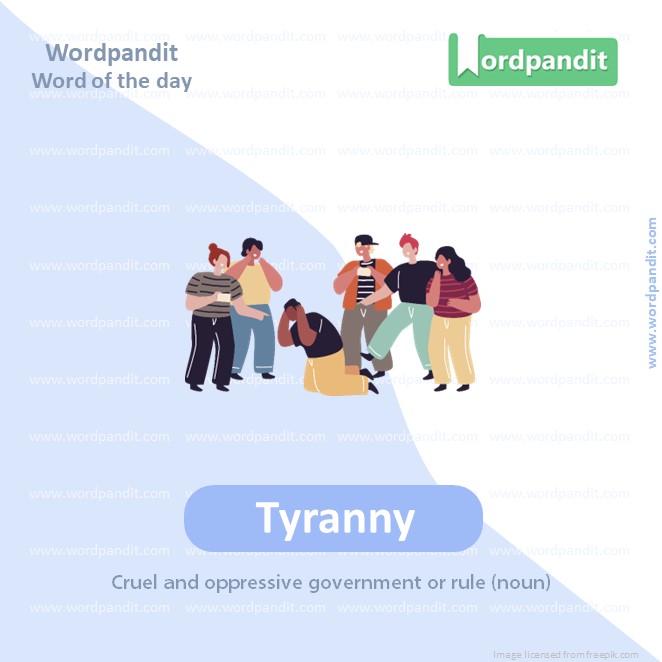Daily Vocabulary from International Newspapers and Publications
Expand Your Vocabulary with Wordpandit’s Global Vocabulary Hub
At Wordpandit, we are committed to helping you develop a truly global vocabulary by drawing from some of the most respected international publications. This section is designed to keep you ahead of the curve by introducing you to words that define global conversations and trends.
The Power of Global Sources
To help you think and communicate on a global scale, we curate vocabulary from renowned international sources, such as:
- The New York Times
- The Washington Post
- BBC
- The Guardian
- The Economist
- Scientific American
- Psychology Today
- And many more...
Stay Global, Stay Competitive
Our daily updates from international publications ensure you are consistently exposed to new words that reflect global news and developments, making sure your vocabulary is not only current but also globally relevant.
Enhance Your Global Perspective
Whether you’re preparing for international exams, aiming to excel in global business communication, or want to enhance your language skills for personal growth, Wordpandit offers the resources you need to thrive in a global context.
Effective Learning, Global Reach
Our learning methodology combines global examples, memory aids, and interactive activities, allowing you to internalize new words effectively and apply them in real-world scenarios.
Begin Your Global Vocabulary Journey Now!
Why Choose Wordpandit?
Practical Learning: Focus on words you'll actually encounter in real-world reading, enhancing your comprehension and communication skills.
Diverse Content: From current affairs to scientific breakthroughs, our varied sources expose you to vocabulary across multiple domains.
Effortless Integration: Make Wordpandit a part of your daily routine. Just a few minutes each day can significantly boost your lexicon over time.
Your Path to Vocabulary Mastery
- Visit our Daily Vocabulary section regularly
- Explore new words and their usage in context
- Practice incorporating these words into your own writing and speech
- Track your progress as your vocabulary expands
Start Your Journey Today
Embark on your vocabulary enhancement journey with Wordpandit. By consistently engaging with our daily posts, you'll build a robust vocabulary that serves you well in academic, professional, and personal contexts.
Remember, a word a day keeps linguistic limitations at bay. Make Wordpandit your daily companion in the quest for vocabulary excellence!
WORD-1: Vermin
Context:
"That delusion is no longer available. When Trump promises to expunge the “radical left thugs that live like vermin within the confines of our country”, it is a safe bet that he intends to follow through. If returned to the White House he would use every executive lever to eliminate restraint on his power." - The Guardian
Explanatory Paragraph:
The word "vermin" originally refers to small, harmful animals or pests like rats or insects. However, when used to describe people, it takes on a much darker tone. It is often used in a highly derogatory way to dehumanize and vilify groups or individuals, implying they are like pests to be exterminated. This kind of language can be politically charged and inflammatory, especially in speeches intended to stir up strong emotions or rally certain ideologies.
Meaning: Harmful or objectionable animals (like rats), or derogatorily, people considered despicable or dangerous (noun)
Pronunciation: VUR-min
Difficulty Level: ⭐⭐⭐ Intermediate
Etymology: From Middle English *vermine*, from Old French *vermin*, from Latin *vermis* meaning "worm".
Prashant Sir's Notes:
This is a charged word — historically used in propaganda to reduce certain groups to subhuman status. Be careful and aware of its tone. The political use of "vermin" is rarely neutral — it's often meant to stir hatred or fear.
Synonyms & Antonyms:
Synonyms: pests, parasites, rodents, scum, lowlifes
Antonyms: citizens, allies, innocents, respectable people
Usage Examples:
- The farmer set traps to deal with the vermin in his barn.
- The dictator referred to dissidents as "vermin" to justify brutal crackdowns.
- Centuries ago, city streets were plagued with vermin spreading disease.
- Using the term "vermin" for any group of people is a dangerous rhetorical tactic.
Cultural Reference:
"The Nazi regime routinely described Jews as 'vermin' in propaganda posters and speeches, a linguistic step that made persecution and genocide more socially acceptable." - Holocaust Museum Archives
Think About It:
What effect does it have on a society when political leaders use dehumanizing language like "vermin" to describe opponents or minority groups?
Quick Activity:
Write two short sentences using "vermin" — one in its literal sense (animals) and one in a metaphorical sense (people). Then, reflect on the difference in emotional tone between the two.
Memory Tip:
Think of "vermin" as "vermin = very mean creatures" — whether actual pests or people considered harmful by others.
Real-World Application:
The word "vermin" is still used in both pest control contexts and in highly charged political rhetoric. Recognizing its usage can help you critically assess the tone and intent behind political speeches or propaganda.
WORD-2: Eliminate
Context:
"That delusion is no longer available. When Trump promises to expunge the “radical left thugs that live like vermin within the confines of our country”, it is a safe bet that he intends to follow through. If returned to the White House he would use every executive lever to eliminate restraint on his power." - The Guardian
Explanatory Paragraph:
"Eliminate" means to completely remove or get rid of something. It is often used in a wide range of contexts — from removing a stain on a shirt to abolishing rules or even, in political or military language, removing people or institutions. The tone of the word depends on its context. In casual use, it sounds neutral or helpful (like eliminating clutter), but in power-related discussions, it can signal something more forceful or aggressive.
Meaning: To completely remove or get rid of something or someone (verb)
Pronunciation: ih-LIM-uh-nayt
Difficulty Level: ⭐⭐ Basic
Etymology: From Latin *eliminare*, meaning "to turn out of doors, expel," from *e-* (out) + *limen* (threshold)
Prashant Sir's Notes:
This is a high-utility verb — simple, direct, and effective in both writing and speech. In competitive exams and analysis, be mindful of its tone, especially when it's used in political or military contexts, where it may imply more than just removal — sometimes even destruction or silencing.
Synonyms & Antonyms:
Synonyms: remove, eradicate, abolish, expel, terminate
Antonyms: retain, include, preserve, maintain, accept
Usage Examples:
- The government launched a campaign to eliminate illiteracy across rural areas.
- He was determined to eliminate distractions while studying for his final exams.
- The coach made tough decisions to eliminate weaker players from the squad.
- The new policy seeks to eliminate any ambiguity in the hiring process.
Cultural Reference:
"In The Hunger Games, contestants are eliminated one by one until a single victor remains — a brutal metaphor for power struggles and survival." - Pop Culture Analysis
Think About It:
Is eliminating something always the best solution, or can it sometimes lead to unintended consequences?
Quick Activity:
List 3 things in your life you'd like to eliminate (bad habits, distractions, etc.) and write one sentence for each explaining why.
Memory Tip:
Think of "eliminate" as "exit-limit-ate" — to push something past the limit and out the door.
Real-World Application:
"Eliminate" is commonly used in daily life, whether in business strategies (eliminate waste), healthcare (eliminate a virus), or education (eliminate gaps in learning). Mastering its nuance helps in writing more direct and action-oriented communication.
WORD-3: Ballot
Context:
"That is why he is facing multiple criminal charges and has been disbarred from even appearing on the ballot in two states (although the ban could be overturned by the supreme court)." - The Guardian
Explanatory Paragraph:
The word "ballot" refers to a process of voting, typically in secret, or the actual piece of paper or electronic form used to cast a vote. In democratic societies, the ballot represents the power of the individual to make a choice — most often in elections. It can also refer to the entire voting process itself. The term is central to discussions of democracy, elections, and political legitimacy.
Meaning: A method of voting, typically in secret, or the actual vote cast (noun)
Pronunciation: BAL-uht
Difficulty Level: ⭐⭐ Basic
Etymology: From Italian *ballotta*, meaning "small ball used in voting", diminutive of *balla* (ball)
Prashant Sir's Notes:
"Ballot" is a foundational word for understanding how modern democracies function. It's both literal and symbolic — representing not just a slip of paper, but the power of a citizen's voice. Also note how it's used metaphorically in political discourse ("win at the ballot box").
Synonyms & Antonyms:
Synonyms: vote, poll, referendum, election form
Antonyms: abstention, boycott (in voting context)
Usage Examples:
- Each citizen placed their ballot in the box to elect the next mayor.
- The issue will be decided by public ballot in the upcoming referendum.
- Voter turnout was low, but every ballot still counted.
- Election workers spent hours counting the paper ballots manually.
Cultural Reference:
"The ballot is stronger than the bullet." - Abraham Lincoln
Think About It:
If access to the ballot is restricted or manipulated, can a government still claim to be truly democratic?
Quick Activity:
Write a short paragraph describing what a fair voting process looks like. Use the word "ballot" at least once.
Memory Tip:
Remember: *Ballot* contains “all” — as in “all get to vote.” It’s about inclusion and individual choice.
Real-World Application:
The concept of a ballot is central in national elections, local governance, and even decision-making in companies or student councils. Knowing how ballots work helps you engage actively and responsibly in democratic processes.
WORD-4: Vendettas
Context:
"He would requisition the justice system to entrench his position and pursue vendettas against all who crossed him. He would find no shortage of appeasers and accomplices." - The Guardian
Explanatory Paragraph:
"Vendettas" refers to long-standing feuds or bitter, often personal, acts of revenge. Historically linked to family or clan disputes (especially in places like Italy), the term has evolved to mean any deep-seated grudge that involves relentless retaliation. When used in political or legal contexts, it suggests that someone is using power not for justice, but for personal revenge — often outside the bounds of fairness or legality.
Meaning: Prolonged and bitter feuds or campaigns of revenge (noun – plural of vendetta)
Pronunciation: ven-DET-uhz
Difficulty Level: ⭐⭐⭐ Intermediate
Etymology: From Italian *vendetta*, meaning "revenge," from Latin *vindicta*, meaning "vengeance"
Prashant Sir's Notes:
"Vendettas" carry a heavy emotional charge. It’s not just about conflict — it’s about ongoing, often obsessive, retaliation. In essays or analysis, especially political ones, use this word to describe irrational or dangerous pursuit of revenge that undermines justice or governance.
Synonyms & Antonyms:
Synonyms: feuds, grudges, revenge plots, retribution, score-settling
Antonyms: forgiveness, reconciliation, truce, amnesty
Usage Examples:
- The politician used his influence to carry out personal vendettas under the guise of policy decisions.
- The feud between the two families turned into a series of violent vendettas over decades.
- He was known for holding onto vendettas, never letting go of a slight.
- In the novel, the antagonist’s life is driven by old vendettas rather than any moral cause.
Cultural Reference:
"In classic mafia films like *The Godfather*, vendettas often span generations, showing how revenge can consume entire families." - Film Studies Quarterly
Think About It:
How does the pursuit of vendettas differ from the pursuit of justice? At what point does seeking fairness turn into seeking revenge?
Quick Activity:
Think of a fictional or historical figure who acted out of vendetta. Write two lines explaining how that vendetta shaped their actions or legacy.
Memory Tip:
Vendetta = "vengeful debt" — think of someone trying to repay a wrong with revenge instead of resolution.
Real-World Application:
Understanding the idea of vendettas helps us interpret actions in politics, law, and literature — especially where power is misused for personal revenge rather than public good.
WORD-5: Tyranny
Context:
"This is how tyranny makes itself electable: it is branded as the avenging arm of freedom." - The Guardian
Explanatory Paragraph:
"Tyranny" refers to a form of oppressive, cruel, and unjust rule, typically by a single person or a small group wielding absolute power. It often involves the suppression of freedoms, abuse of authority, and the use of fear to control others. In modern contexts, it can also refer more broadly to any form of harsh domination or systemic injustice. The word carries a heavy historical and political weight, often associated with dictatorships and authoritarian regimes.
Meaning: Cruel and oppressive rule or government (noun)
Pronunciation: TIR-uh-nee
Difficulty Level: ⭐⭐⭐ Intermediate
Etymology: From Old French *tyrannie*, from Latin *tyrannia*, from Greek *tyrannos* meaning "lord, master, absolute ruler"
Prashant Sir's Notes:
This is a deeply political word, often used in history, literature, and current affairs. It represents the opposite of democracy. When analyzing texts or speeches, watch how "tyranny" is invoked — it's usually meant to trigger emotional resistance to authoritarian control or perceived injustice.
Synonyms & Antonyms:
Synonyms: despotism, dictatorship, oppression, authoritarianism, autocracy
Antonyms: democracy, liberty, freedom, self-rule, justice
Usage Examples:
- The revolution was sparked by years of economic hardship and political tyranny.
- She compared the school’s strict policies to a form of academic tyranny.
- The novel portrays a dystopian society under the grip of corporate tyranny.
- Citizens rose up to challenge the tyranny that had robbed them of their voices.
Cultural Reference:
"When the people fear the government, there is tyranny; when the government fears the people, there is liberty." – Thomas Jefferson (attributed)
Think About It:
Can tyranny exist in a democracy? How do modern forms of control or surveillance challenge the idea of freedom?
Quick Activity:
Name one real or fictional tyrant you know. In 2–3 lines, explain how they used their power and how people responded to it.
Memory Tip:
Think: "Tyranny is when the 'tyrant' takes your liberty." The root *tyr* reminds you of the word "tyrant."
Real-World Application:
Understanding "tyranny" is crucial in discussions of governance, history, and civil rights. It's a term that alerts people to power imbalances and reminds us of the value of democratic institutions and accountability.



















